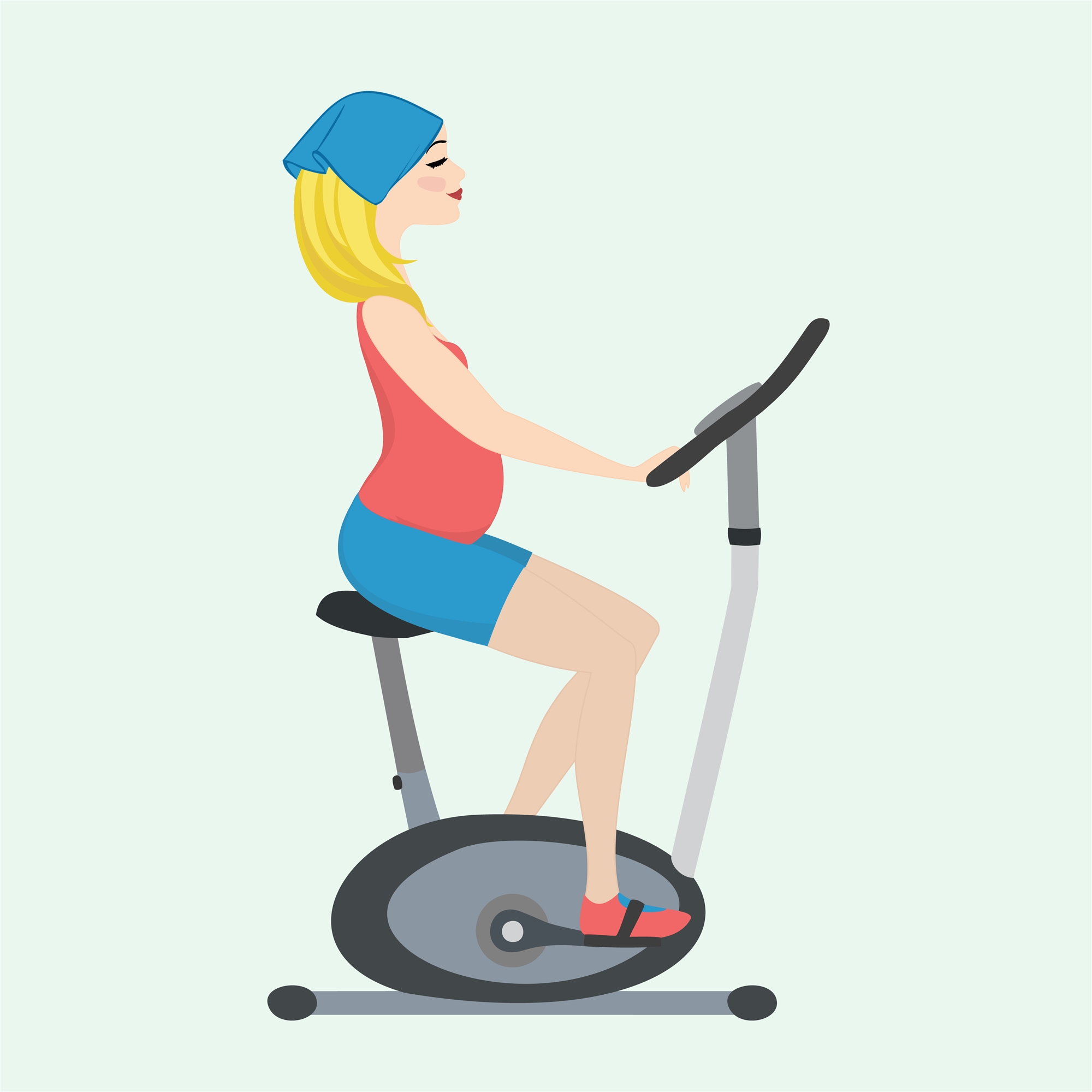Advantages of exercising during pregnancy
- Managing weight gain during pregnancy.
- Reducing likelihood of Gestational Diabetes and high blood pressure.
- Reducing likelihood of premature birth.
- Reducing the likelihood of caesarean section.
What is the most suitable exercise intensity during pregnancy?
Faster heartbeat, sweating and talking but not being able to sing, are approximately the state of intermediate intensity of exercise. The heartbeat for exercise in general is less than 140 beats/minute [maximum heart beat rate = 207 – (0.7 x age).
How to exercise during pregnancy? What is the schedule and frequency?
It is recommended to engage in at least 150 minutes of aerobic exercises with intermediate intensity per week. Aerobic exercises refer to regular movement of large muscle groups, including upper extremity or lower extremity. The frequency includes:
- 5 times per week, 30 minutes each time.
- 3~4 times per week, 30~60 minutes each time.
- Daily exercise, 10 minutes each time.
Which exercises are safe and effective for pregnant women?
 |
 |
 |
 |
|
Walking
|
Stationary cycling
|
Swimming
|
Yoga and Pilates
|
(Athletes or persons engaged in regular exercises can continue the previous resistance and weight training, jogging and other exercises. We recommend discussion with your obstetric doctor).
Can I exercise during pregnancy, if I have never exercised before pregnancy? Or, I have engaged in regular exercises before pregnancy, can I keep the previous exercise when I am pregnant?
- Exercises are encouraged if the exercise does not cause physical discomfort. It is recommended to adjust progressively, starting from 5 minutes, adding 5 minutes each time and until reaching continuous 30 minutes for every time of exercise.
- Pregnant women already exercising regularly can maintain pre-pregnancy exercise. However, it is recommended to consume more calories in order to cope with the depletion of overall growth during pregnancy while paying attention to the physical conditions. Do not over exercise.
Precautions for exercise during pregnancy
- Replenish water before, during and after exercise to avoid dehydration. Pay attention to the urine volume and color, level of sweating, nausea, dizziness, or excessively fast heartbeat.
- Wear suitable sports bra and use maternity belt for exercise in late pregnancy, in order to reduce discomfort during exercise.
- Avoid high-temperature environment (particularly first trimester) to replenish water. Wear loose cloth and exercise in room of constant temperature. Do not exercise outdoor under sunny or rainy days.
- Avoid standing or laying still over long period of time. If you stay unmoved, the blood could accumulate in lower extremity and resulting in the temporary drop in blood pressure, which could cause dizziness. The person lying down too long could have enlarging uterus compressing the Inferior vena cava reflux causing discomfort.
- Increase warmup and easing period. It is recommended to have 10~15 minutes.
- Following the pregnancy schedule, the more it gets closer to the due date, the lower the exercise intensity should eventually get.
- Note low blood glucose condition at all time and consume carbohydrate or snacks carried before exercise.
Which pregnant women with special conditions should not execise?
- Specific heart-related disease (placement of pacemaker, heart failure, heart valve replacement surgery)
- Restrictive lung disease.
- Cervical incompetence or having done cervical cerclage.
- Multiple births (including twins and triplets) with risks of premature birth.
- Placenta previa in 26 weeks of pregnancy.
- Preterm labor and Premature rupture of membrane.
- Vaginal bleeding in 2nd and 3rd trimester pregnancy.
- Diagnosed of pre-eclampsia or gestational hypertension.
- Severe anemia.
Which conditions require the immediate suspension of exercise during pregnancy?
- Vaginal bleeding, regular and painful contraction (continuous and intense lower abdominal pain).
- Watery discharge constantly gushing out from the vagina (suspected rupture of membrane).
- Breathing difficulty, dizziness, headache, chest pain, muscle weakness that affects the balance, calf pain or swelling.

